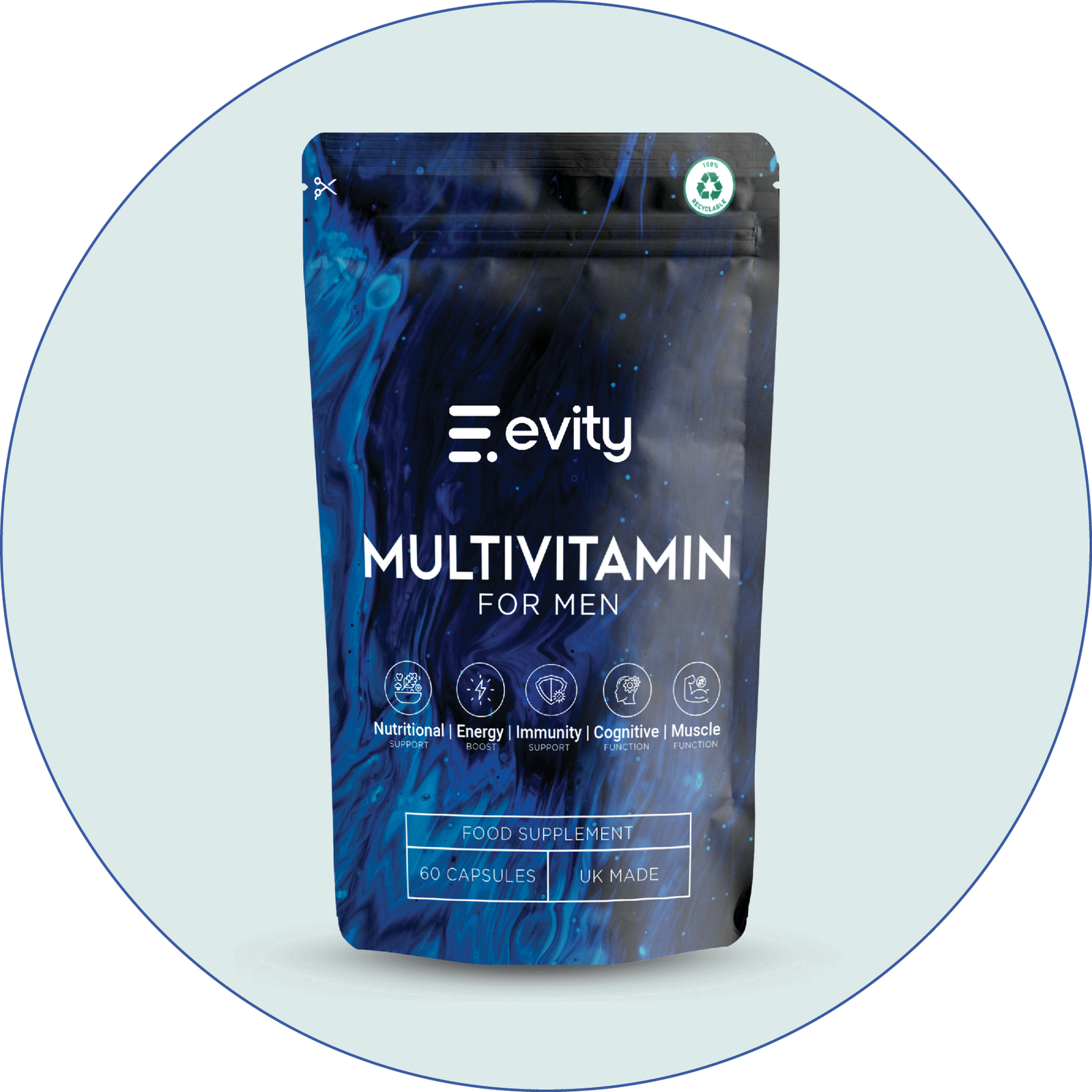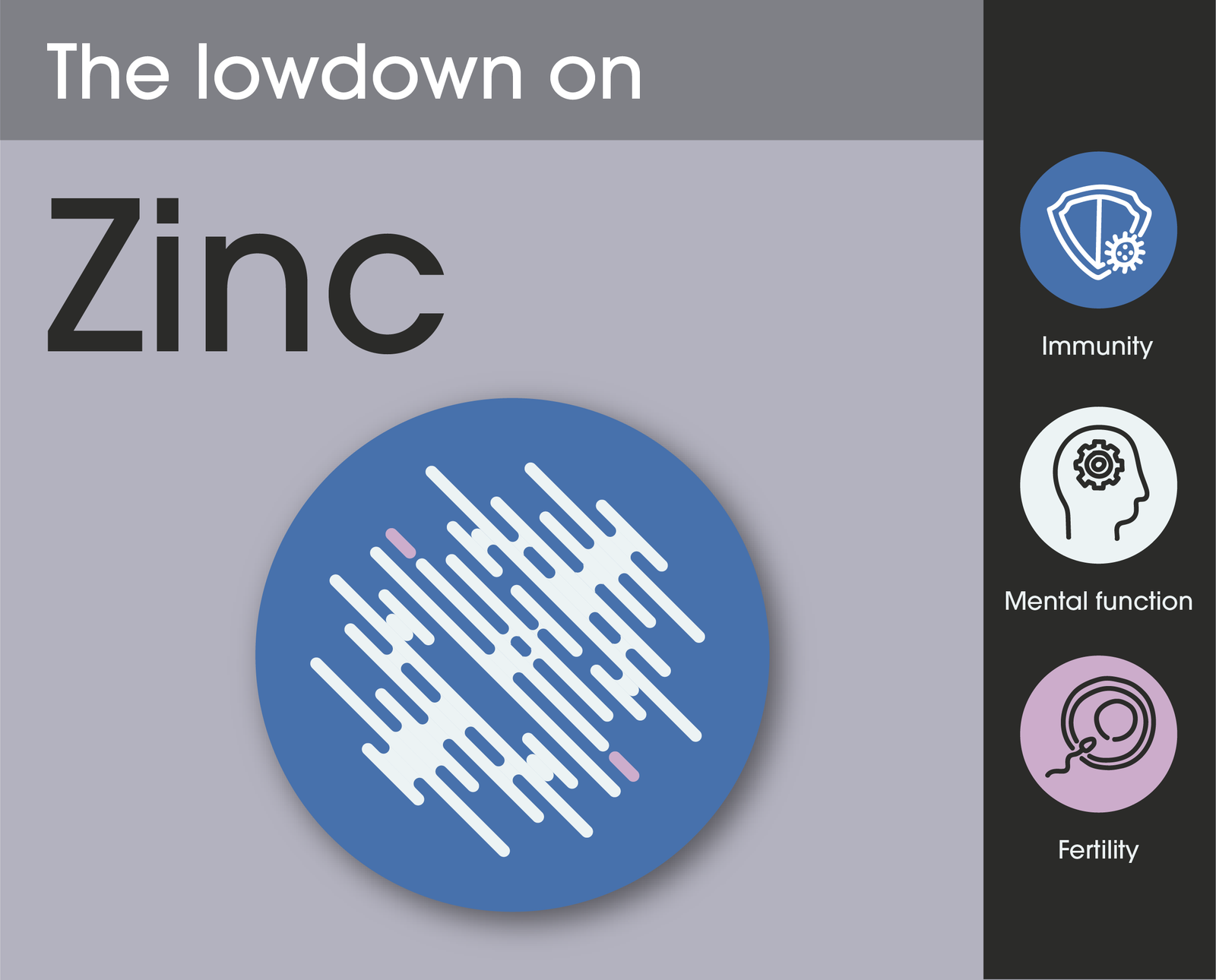
Benefits of magnesium in the body
Magnesium's biochemical effects can be far-reaching. Nearly all of our cellular functions via 300 plus enzyme pathways (1) and up to 500 other pathways in the body are affected by magnesium.
Your body needs a high amount at approximately 25g of this great stuff. Many western diets are lacking in this, including traditionally labelled healthy ones. This lack results in much of the population being deficient or at suboptimal levels of magnesium.
Energy Levels
Magnesium is a co-factor for cell energy production (4,5). Early signs of suboptimal or magnesium deficiency is fatigue (6).
Heart Health
Magnesium can help in your cardiovascular health. Studies show it can help regulate blood pressure, maintain a regular heartbeat, and keep healthy clear arteries (3).
Muscle function and health
Magnesium, working in conjunction with calcium, can help play a pivotal role in muscle relaxation (6). These can affect everything from exercise performance and recovery (7) to sleep (8).
Mental and nervous system health
Magnesium transmits messages down nerve pathways. Studies show that low levels can be a risk factor in such mental health issues as anxiety, depression, migraines, and even Parkinson's and dementia (9).
Teeth and bones
Its relationship with calcium and vitamin D means magnesium can help maintain strong teeth and bones (10).
Why our form of magnesium is superior
Magnesium hydroxide is extracted from seawater as it's gentle on the stomach. It also contains 72 other essential trace minerals (11). It is significantly easier to absorb than other forms like magnesium oxide (11).
Foods rich in magnesium
Nuts and seeds are the best sources, particularly pumpkin seeds, chia seeds and almonds (12). Magnesium in these becomes more available via blanching or soaking to eliminate any anti-nutrients that bind to the magnesium and prevent it from being absorbed.
Daily recommended intake of magnesium
Daily intake should be between 270 and 300mg (13). Where there are magnesium deficiencies, studies suggest a dose of up to 600mg should be supplemented (3).
The latest research on magnesium
Women's hormonal health
This is a significant area where subclinical magnesium deficiency can impact daily life and function. Research suggests this may be compounded by the oral contraceptive pill's ability to deplete magnesium (14). Research shows magnesium can be effective in helping women manage a healthy menstrual cycle, pregnancy, menopause, and conditions such as PCOS and endometriosis.
Inflammation
Low magnesium levels may be one of the many drivers of inflammation, a trigger for disease and ill health (15).
Stress
The latest research suggests low levels of magnesium can increase stress responses, as well as deplete levels of magnesium. This creates a vicious stress cycle (16).
Obesity
Studies show an inverse relationship between intake and obesity. Other associated risks include an increased likelihood of type 2 diabetes and developing metabolic disease.
Problems with overdose
Magnesium toxicity is possible, causing thirst, hypotension, central nervous system depression, drowsiness, confusion, skeletal muscle paralysis, loss of tendon reflexes, respiratory depression, cardiac arrhythmias, and, in extreme cases, coma, cardiac arrest, and death.
Over supplementation has occurred generally with incorrect use/overconsumption of over-the-counter magnesium laxatives, magnesium-based antacids, or ingesting Epsom salts designed for bathing.
Kidney damage can also lead to too high magnesium levels.
References:
- https://europepmc.org/article/med/8754371
- https://www.ncbi.nlm.nih.gov/pmc/articles/PMC8065437/#B18-nutrients-13-01136
- https://openheart.bmj.com/content/5/1/e000668?%20style=color:
- https://pubmed.ncbi.nlm.nih.gov/6227614/
- https://pubmed.ncbi.nlm.nih.gov/2931560/
- https://www.ncbi.nlm.nih.gov/pmc/articles/PMC4455825/
- https://www.mdpi.com/2072-6643/9/9/946
- https://bmccomplementmedtherapies.biomedcentral.com/articles/10.1186/s12906-021-03297-z
- https://www.ncbi.nlm.nih.gov/pmc/articles/PMC6024559/
- https://efsa.onlinelibrary.wiley.com/doi/epdf/10.2903/j.efsa.2009.1216
- https://www.ncbi.nlm.nih.gov/pmc/articles/PMC6073474/
- https://ods.od.nih.gov/factsheets/Magnesium-HealthProfessional/#h3
- https://www.nhs.uk/conditions/vitamins-and-minerals/others/
- https://www.sciencedirect.com/science/article/pii/S2352364621000079
- https://www.sciencedirect.com/science/article/abs/pii/S1084952120301713
- https://www.mdpi.com/2072-6643/12/12/3672
- https://link.springer.com/article/10.1007/s00394-020-02206-3
- https://www.mdpi.com/2072-6643/13/2/320?h=1





